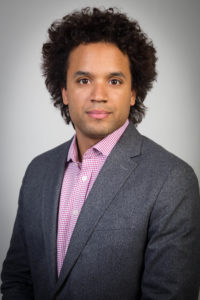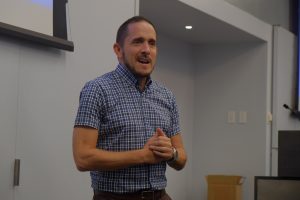Education
Scholarships, Mentorships are Among NYU Diversity Efforts
By Julia Kim
Spectrum staff
Based on the racial, economic and geographic backgrounds of its students and faculty, Niche ranked New York University the 10th most diverse college in America in 2017.
It has achieved that status, partly, through efforts such as the NYU Momentum campaign and the Equity, Diversity, and Inclusion Advisory Task Force, college officials said.
“We were founded back in the early to mid 1800s as a university that was really intended to be open to all people,” said Shawn Abbott, NYU’s assistant vice president and dean of admissions.
Back then, Abbott added, students at most of the nation’s colleges were white, Christian men. But NYU was aiming, even in those days, to buck that trend.
Especially as America itself has grown more diverse, colleges are among institutions that have set out to make sure they reflect that diversity.
NYU students and faculty have a few things to say about the subject.
 Twenty-two-year-old NYU student Juan Calero, a senior humanities major, was a member of the Equity, Diversity, and Inclusion Advisory Task Force, which started in 2015 but disbanded in Spring 2017 because NYU just hired its first chief diversity officer.
Twenty-two-year-old NYU student Juan Calero, a senior humanities major, was a member of the Equity, Diversity, and Inclusion Advisory Task Force, which started in 2015 but disbanded in Spring 2017 because NYU just hired its first chief diversity officer.
“The entire student body really came out in droves,” said Calero, recalling interest in the task force’s first listening session. “The gym itself was entirely packed. People were standing in the aisles and, likewise, there were a couple thousand people watching online.”
Calero threw himself into working on the demands list that the task force was assigned to compile.
NYU, the Cali, Colombia native said, generally is an accepting university but it also can be hostile. Once, minutes before the start of class, as he wound down a phone call with his mother, a classmate turned to him an said, “Talk in English, you f*&%ing spic,” Calero. And a professor once remarked that he was surprised that he was so well spoken.
So, not only is there a need for more diversity by the numbers, but also for more racial awareness, “cultural competency” and more ways to combat discrimination.
Mentoring Program for Diverse Faculty is one NYU program aiming to address those kinds of concerns. It pairs senior faculty members with junior faculty members from historically underrepresented communities to help ensure that educators of color succeed and remain part of NYU’s community.
“It was important to connect with other people who have persevered in a predominantly white community” said Jacob Faber, an assistant professor of public service at the NYU Robert F. Wagner Graduate School of Public Service.
Through the years, NYU has grown into one of the only U.S. colleges without an ethnic majority. About 27 percent of the student body is white, 18 percent is Asian, 15 percent is Latino and 8 percent is black. But, among the teaching faculty, only about half of the staff at NYU are non-white.
“Higher education is fraught with inequities and it is our job to answer to those inequities and build racial diversity and economic diversity and religious diversity,” said Heather Woodley, a clinical assistant professor of bilingual and foreign language education. In 2014, she was matched with a mentor who’d invited her to join the project.
Professors Faber and Woodley stressed that being in a classroom with teachers and students of different backgrounds is a reflection of global communities, enriching the learning and overall academic experience.
Also, for many students of color, having instructors of color may provide needed role models and lessen their risks of feeling isolated.
All those things aside, a big challenge to meeting diversity goals is the relatively high costs of attending NYU. On-campus students pay roughly $73,000 a year in tuition, fees and other expenses.
NYU is in the midst of several special scholarship initiatives, including the Momentum Campaign. By year’s end, fundraisers hope to generate $1 billion for low- and middle-income students who need those dollars.
“A lot of times students from underrepresented socio-economic communities look at the price tag and can be entirely discouraged from looking at NYU.” Abbott told The Spectrum.
He continued: “Most people at NYU truly believe that you can’t be an excellent institution unless you have a diverse student body.”


